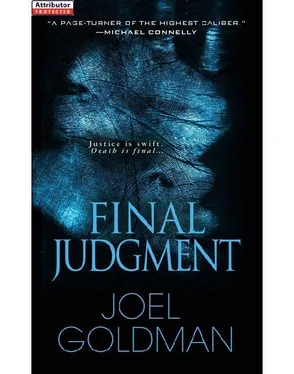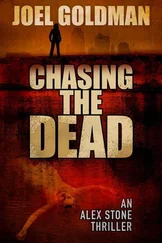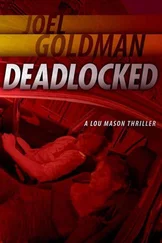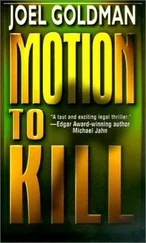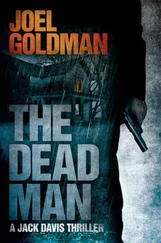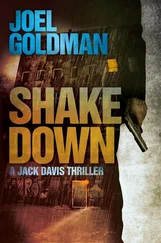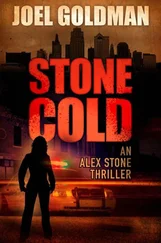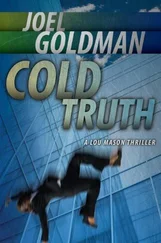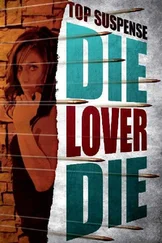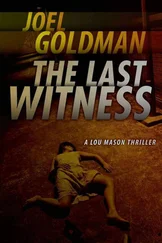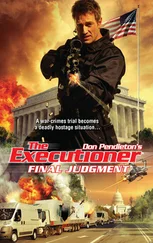Joel Goldman - Final judgment
Здесь есть возможность читать онлайн «Joel Goldman - Final judgment» весь текст электронной книги совершенно бесплатно (целиком полную версию без сокращений). В некоторых случаях можно слушать аудио, скачать через торрент в формате fb2 и присутствует краткое содержание. Жанр: Криминальный детектив, на английском языке. Описание произведения, (предисловие) а так же отзывы посетителей доступны на портале библиотеки ЛибКат.
- Название:Final judgment
- Автор:
- Жанр:
- Год:неизвестен
- ISBN:нет данных
- Рейтинг книги:3 / 5. Голосов: 1
-
Избранное:Добавить в избранное
- Отзывы:
-
Ваша оценка:
- 60
- 1
- 2
- 3
- 4
- 5
Final judgment: краткое содержание, описание и аннотация
Предлагаем к чтению аннотацию, описание, краткое содержание или предисловие (зависит от того, что написал сам автор книги «Final judgment»). Если вы не нашли необходимую информацию о книге — напишите в комментариях, мы постараемся отыскать её.
Final judgment — читать онлайн бесплатно полную книгу (весь текст) целиком
Ниже представлен текст книги, разбитый по страницам. Система сохранения места последней прочитанной страницы, позволяет с удобством читать онлайн бесплатно книгу «Final judgment», без необходимости каждый раз заново искать на чём Вы остановились. Поставьте закладку, и сможете в любой момент перейти на страницу, на которой закончили чтение.
Интервал:
Закладка:
He had to be downtown in fifteen minutes and he was thirty minutes away. He couldn’t leave his car in the parking lot without arousing suspicions at the synagogue. He couldn’t leave his car at home and take the bus downtown because he didn’t know where to catch the bus or even which bus to take if he did.
As he considered his options, the idea of parking his car with its decaying cargo at the Federal Courthouse wasn’t as bad as he first thought. The parking lot was across the street from the courthouse. It was secure, regularly patrolled by the U.S. Marshals’ deputies who were responsible for courthouse security. No one was going to break into a car in that lot. It was cold enough and the corpse was fresh enough that the body hadn’t started to smell.
Mason had told him that the meeting with the U.S. attorney shouldn’t take too long, though he could expect some fireworks as the attorneys postured for one another, doing their peacock dance. Fish hoped the meeting was more a formality than anything else.
Good, he thought to himself. Things work out if you give them a chance and work the right angles. That had always been his philosophy. He took a deep breath, put the Cadillac in gear, and tried not to think about the body in the trunk.
TWO
Fish was in sales. Buy, sell, trade. He didn’t always own what he sold. He didn’t always pay for what he bought, and he didn’t always have what he traded. These were business risks that he managed through the next buy, sell, or trade.
His entire life had been a teetering Ponzi scheme in which he had to make the next deal just to stay a step ahead of the last one. Not that he was in Bernie Madoff’s league, not by a long shot. Now there was a gonif. Fish admired Madoff for his balls, but even he had cringed at the scope of the devastation Madoff had caused, rationalizing his own crimes as minor offenses that had left a few people short a few bucks, nothing they couldn’t recover from.
The U.S. attorney had indicted Fish for mail fraud stemming from a vacation time-share scam. Fish had assembled a loose network of third-rate condos in Orlando and Ft. Lauderdale, promised below-market prices for theme park and cruise packages, and bundled the pitch in a slick, glossy, four-color brochure. He bought a mailing list of likely marks and mailed them his solicitation. He got so many takers that the properties were oversold and double-booked. People complained that they couldn’t book their time-share or that, when they did, their unit was already occupied when they arrived.
He made a killing, using the proceeds to pay off the most vociferous of the complainers, until one outraged customer told the story to his next-door neighbor, who happened to be a secretary at the Kansas City office of the FBI. And the rest was commentary.
It wasn’t difficult or sophisticated. A good scam never was. It depended on people who would jump at deals that were too good to be true. Fish counted on them to forget the flip side of the axiom that such deals almost always were.
For Fish, life was a game in which everyone was a free agent. Winners anticipated the responses of the other players. Winners took advantage of better information. Winners made hard choices.
Losers reacted based on imperfect information and wimped out when their losses got too high. That’s why most people who complained about their time-shares settled for getting less than one hundred percent of their money back. Fighting harder wasn’t worth the effort. Fish knew that.
He was reconciled to being the loser in the game with the U.S. attorney. He admired Mason for not conning him. The government’s case was solid. The feds had been sniffing after him for years. They were going to take him down. Cutting a deal wasn’t wimping out. It was the only rational decision.
The body in the trunk presented an entirely different problem. He had no idea how to get rid of it without being implicated in a murder he didn’t commit. He could stop at police headquarters and invite a homicide detective to take a peek. Given his present circumstance with the Justice Department, he doubted the cops would buy his “beats me” answer to the questions they would ask.
He could tell his lawyer, but he knew what Mason would tell him. Go to the cops. Maybe good advice for another day, but definitely not today.
By the time he pulled into the courthouse parking lot, Fish was convinced of two things: He had to get out of there with a signed deal as fast as he could, and then he had to take care of the dead body on his own.
He’d have to get a new car as well. He couldn’t take the chance that a latent hair of the murder victim would one day be scraped out of the trunk while he stood around shrugging his shoulders like the old Jew in the joke about why Jews have such short necks. “I don’t know,” Fish said to no one, shrugging and smiling to himself. Don’t lose your sense of humor, his mother always told him. He pictured her for a moment as he walked toward the courthouse, smiling without reason.
Fish met Mason in the hall on the eighth floor. He was leaning against the wall, arms folded across his chest, when Fish got off the elevator. Fish hurried toward him, hands outstretched.
“I’m sorry I’m late. The rabbi grabbed me after services this morning. Everything with him is another sermon. He wouldn’t let me go until I told him he’d have to call the FBI and tell them I hadn’t jumped bail.”
Mason shook his hand. “Don’t worry. Samuelson is running late too. His secretary said he’d be another twenty or thirty minutes. There’s a lot of hurry up and wait in the practice of law.”
Fish pulled off his topcoat, and laid it across his arm. He looked out the eighth-floor windows at the panoramic view to the south, focusing on the parking lot below. He spotted his car tucked into a space at the back of the lot. Someone parked next to his Cadillac, got out, and walked toward the courthouse without so much as a backward glance. Fish exhaled loudly, unaware that he’d been holding his breath.
Mason asked, “Are you okay, Avery? I’ve got mold in my refrigerator that looks better than you do.”
Fish wiped his brow. More sweat. “How should I look? I work all my life and I’m about to get the penitentiary instead of a pension.”
“There’s a bathroom down the hall. Splash some water on your face. Straighten your tie and pinch your cheeks for some color. You look like death warmed over. I want Samuelson to see the grandfather not the gonif.”
Fish smiled. That’s why he liked Mason. No bullshit and a sense of humor. It didn’t hurt that he was a member of the tribe, a fellow Jew. When it was crunch time, his people always took care of one another.
Forty minutes later, they were ushered into a conference room by Samuelson’s secretary, who apologized again that her boss had been delayed by an emergency in another case. She apologized a second time that there was no coffee, closing the door and leaving Fish and Mason alone.
The conference room was small and had no windows. Pinpoint beams of light aimed at them from miniature floodlights buried deep in ceiling canisters. Mason sat in one of the black leather chairs ringing a circular table. Fish paced, brushing his hand along the surface of the table.
“Samuelson,” Fish said. “He must be a young guy.”
“Around thirty, I’d say. How did you know?”
“This conference room. It’s for minor leaguers. You want to impress somebody with the might of the federal government, you get the big room with the picture of the president on the wall and a couple of flags in the corners. Maybe one of those big bronze seals with the eagle on it. I’d say Samuelson doesn’t carry a lot of weight around here if this is the best conference room he can get.”
Читать дальшеИнтервал:
Закладка:
Похожие книги на «Final judgment»
Представляем Вашему вниманию похожие книги на «Final judgment» списком для выбора. Мы отобрали схожую по названию и смыслу литературу в надежде предоставить читателям больше вариантов отыскать новые, интересные, ещё непрочитанные произведения.
Обсуждение, отзывы о книге «Final judgment» и просто собственные мнения читателей. Оставьте ваши комментарии, напишите, что Вы думаете о произведении, его смысле или главных героях. Укажите что конкретно понравилось, а что нет, и почему Вы так считаете.
